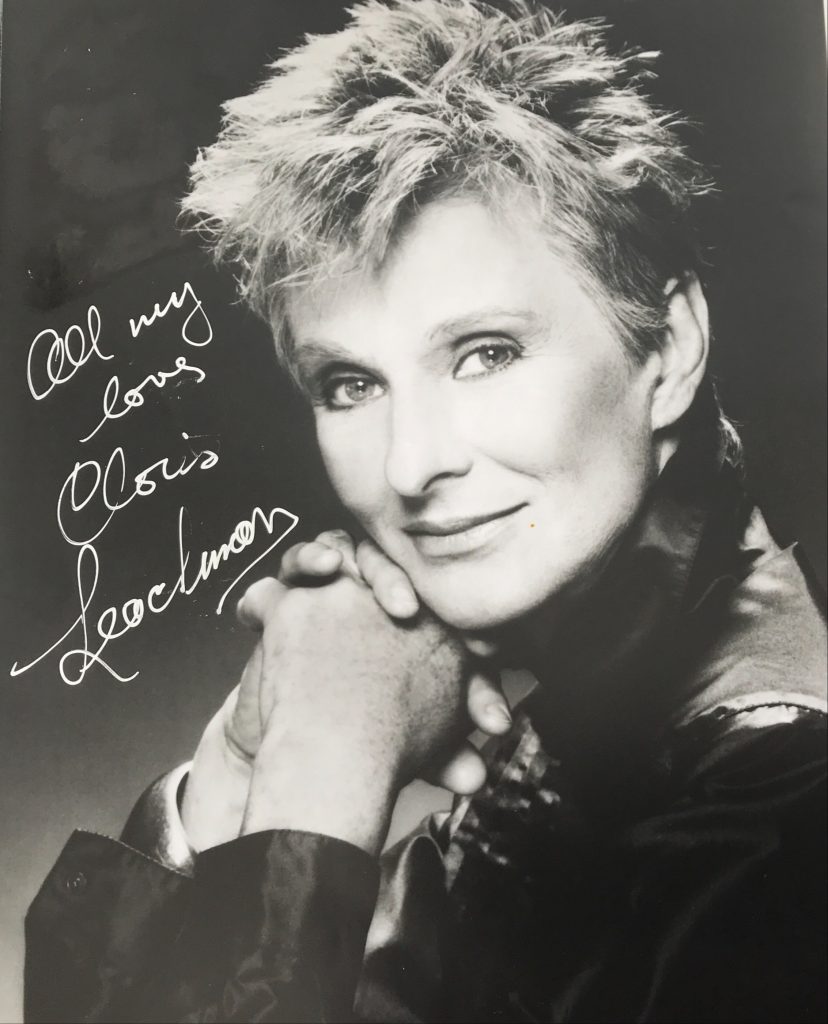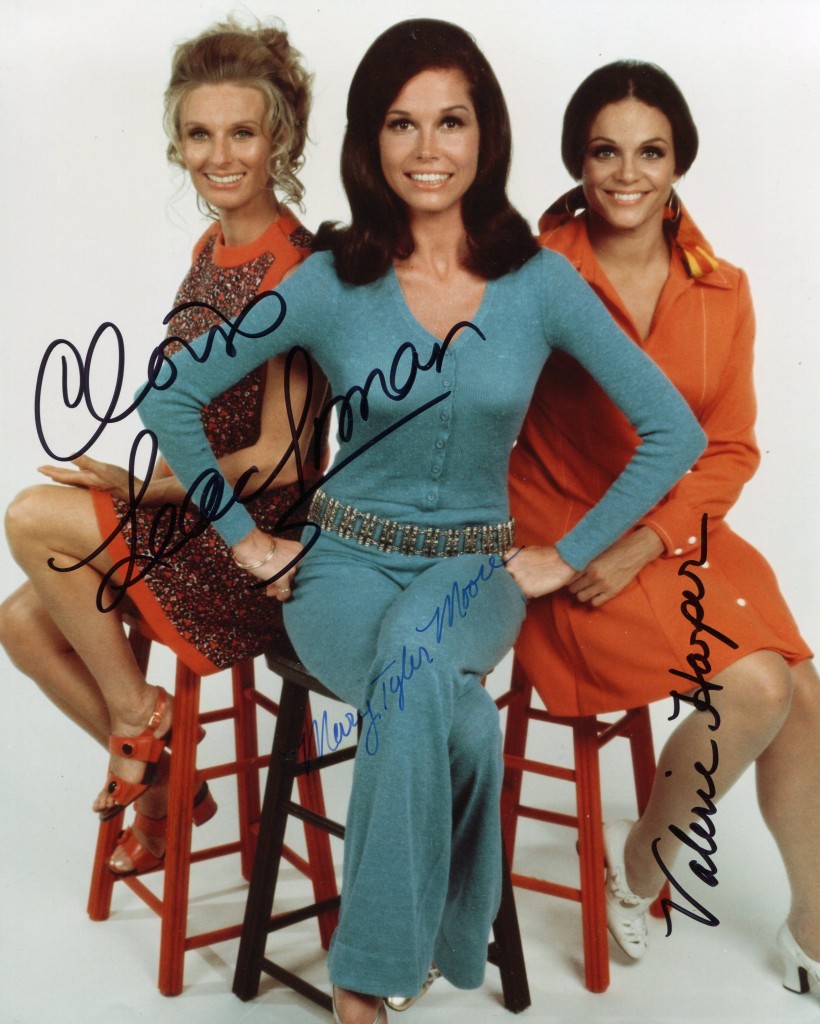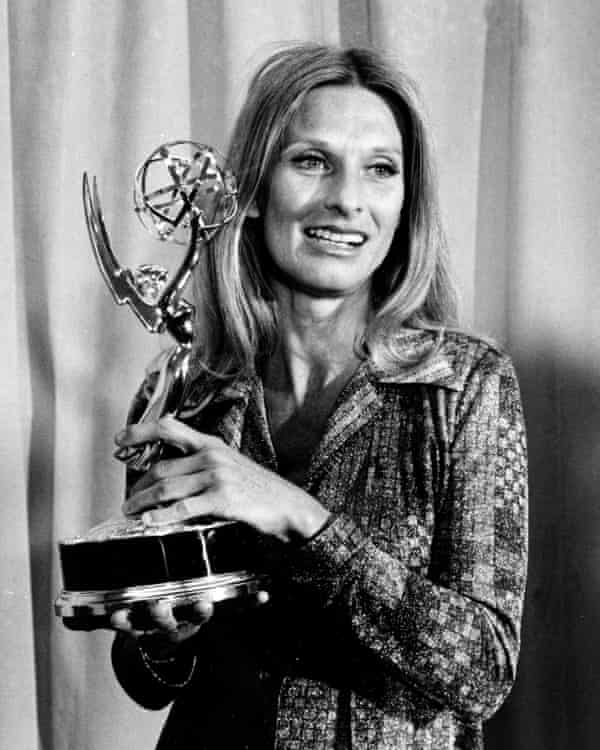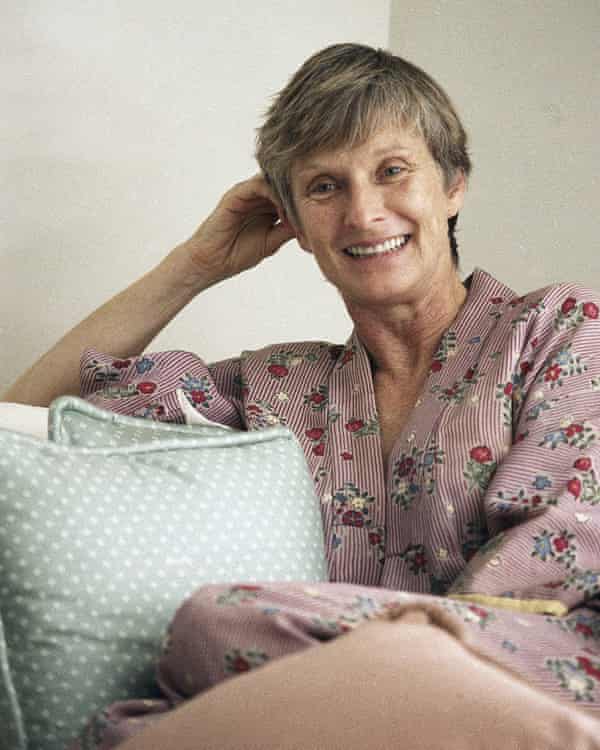

Cloris Leachman. Guardian January 2021 Obituary:
Few actors could have asked for a more startling debut to their film careers than Cloris Leachman, who has died aged 94. In the opening of Robert Aldrich’s masterly film noir Kiss Me Deadly (1955), she is first seen running along a dark country highway at night, barefoot and clad only in a pale trench coat.
Terrified, she tries to flag down several cars until she forces one driven by the private eye Mike Hammer (Ralph Meeker) to stop. He reluctantly lets her get in. As the opening credits roll, we hear her highly amplified heavy breathing while, from the radio, Nat “King” Cole sings I’d Rather Have the Blues.
Leachman is in the film for less than 10 minutes but, during that time, she expresses a range of emotions: fear, strength, inscrutability, wit and sensuality. Her last words to Hammer are “Remember me”, a plea that does not go unheeded by the hero, or the audience, throughout the film.

There were further memorable performances in Leachman’s filmography, including her well-deserved Oscar-winning supporting role in Peter Bogdanovich’s The Last Picture Show (1971) and parts in three of Mel Brooks’s vaudeville comedies. But it was television that took up the bulk of her career, and for which she won eight Primetime Emmy awards out of 22 nominations.
In fact, Leachman had begun acting professionally in TV and on the stage in 1948, seven years before Kiss Me Deadly. Her parents, Cloris (nee Wallace) and Buck Leachman, ran the Leachman Lumber Company in Des Moines, Iowa, where she was born, the eldest of three sisters. After majoring in drama at Northwestern University, in Illinois, she started to act in plays and musicals at the Des Moines Playhouse.
A scholarship that she won as a prize for competing in Miss America in 1946 enabled her to study at the Actors Studio with Elia Kazan in New York during its earliest days. It was Kazan who directed Leachman in her first role on Broadway, in a play entitled Sundown Beach (1948). The following year, Leachman was Mary Martin’s understudy as Nellie Forbush in South Pacific, later taking over the leading singing and dancing role for some months.Advertisementhttps://e84a4a6de63722665afa9be7ab8a88e0.safeframe.googlesyndication.com/safeframe/1-0-37/html/container.html
Then, in 1950, Leachman had a choice few young actors could ever dream of. She was cast as Marie, the undergraduate, in William Inge’s Come Back, Little Sheba, which opened out of town to terrific reviews, many of them citing Leachman as an exciting newcomer. But three weeks before the play was to open on Broadway, Katharine Hepburn asked Leachman to audition for the role of Celia opposite her Rosalind in As You Like It (1950). “Should I continue in Come Back, Little Sheba, a production that promised success and glamour, or should I share the world of the great bard with her Eminence Katharine Hepburn?” Leachman wrote in her memoir, Cloris (2009). She chose the latter without regret.
During the same period, Leachman began to be seen on TV. In fact, she was hardly ever off the box. Her first regular series was Lassie (1957-58), in which she was Ruth Martin, the mother of the dog’s owner. She won her first Emmy for A Brand New Life (1973), as a woman having her first child at 40. However, it was The Mary Tyler Moore Show (1970-77), in which she played Mary’s egotistical and manipulative landlady, Phyllis Lindstrom, for which she was best known.
With perfect comic timing, Leachman managed to make an unsympathetic, irritating character so warmly welcomed by audiences that, after 34 episodes, she was given the starring role in a successful spin-off series, Phyllis (1975-77). She played more lovable characters in the sitcoms The Facts of Life, in which she was Beverly Ann, a divorcee who acts as confidante to a group of young women, and The Ellen Show, as Ellen DeGeneres’s mother. She also gathered two Emmys for her role as a hard-drinking grandmother from hell in Malcolm in the Middle (2000-06).

Leachman relished playing a variety of cranky grandmothers, mothers (as in the title role of Crazy Mama, 1975) and assorted grotesques in films, exceptions being Kiss Me Deadly and her tender portrayal of a lonely football coach’s wife in The Last Picture Show. In the latter, it is Leachman who has the final word as she consoles the youth (Timothy Bottoms) with whom she has a brief encounter. She reprised the role for Bogdanovich in the sequel Texasville (1990), in which everyone had got much older but not wiser.
Following her Oscar triumph, Bogdanovich cast her as the eponymous heroine’s befuddled nouveau-riche mother in his version of Henry James’s Daisy Miller (1974). In the same year, in Brooks’s Young Frankenstein, she appeared as the hideous housekeeper Frau Blücher, the focus of a running joke – every time her name is mentioned, horses whinny and rear up in fear.
Still determinedly going over the top in High Anxiety (1977), Brooks’s Hitchcock lampoon, Leachman was the dominatrix Nurse Diesel, who works at the Institute for the Very, Very Nervous. In the French Revolution section of History of the World: Part I (1981) she played a raucous harridan, Madame Defarge.
She was reportedly upset when Brooks failed to cast her as Frau Blücher in the Broadway musical production of Young Frankenstein in 2007. He was quoted as saying that Leachman was too old for the role: “We don’t want her to die on stage.” As if to prove him wrong, a year later, she became a contestant on Dancing With the Stars, at 82 the oldest person to compete in the show, and continued to take TV and filmroles, earning the most recent of her Emmy nominations in 2011 for a guest role in Raising Hope.
Leachman, who was married to the producer and director George Englund from 1953 until their divorce in 1979, is survived by four of her five children – three sons, Morgan, Adam and George, and a daughter, Dinah – and by seven grandchildren. Her son Bryan died in 1986.
• Cloris Leachman, actor; born 30 April 1926; died 27 January 2021
• by Ronald Bergan


